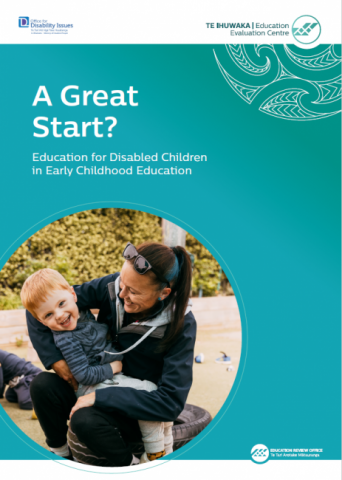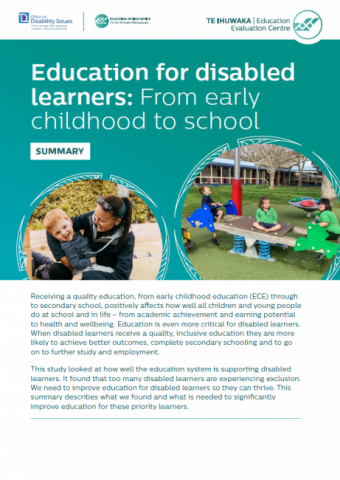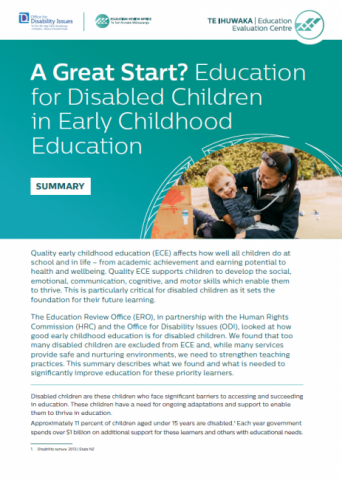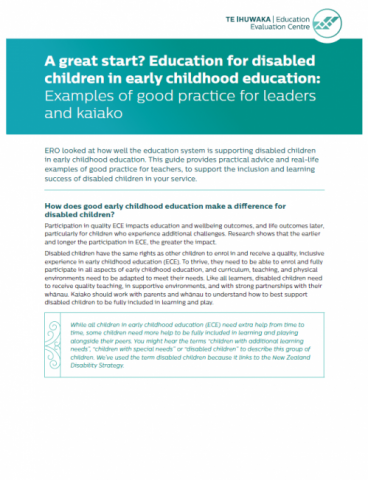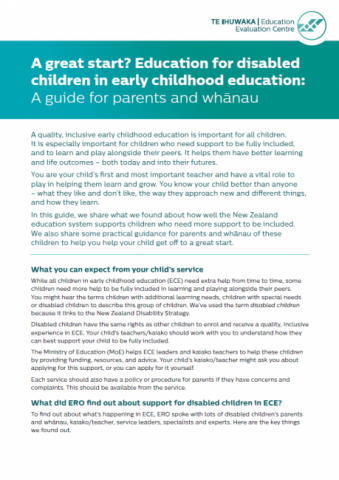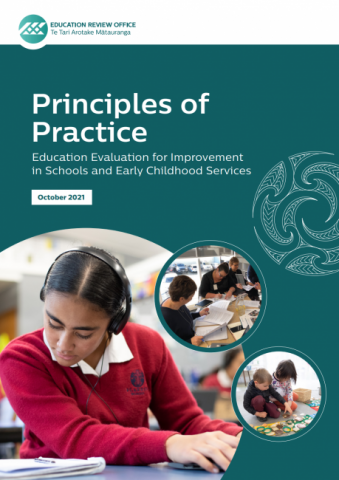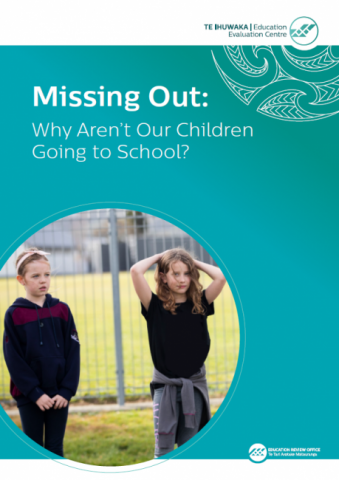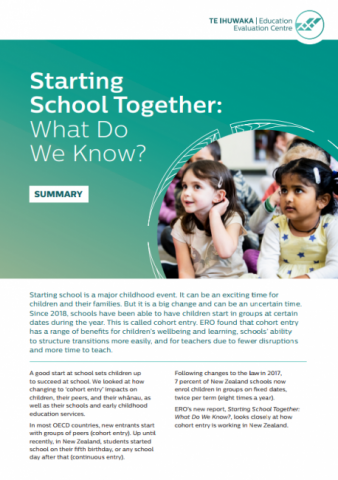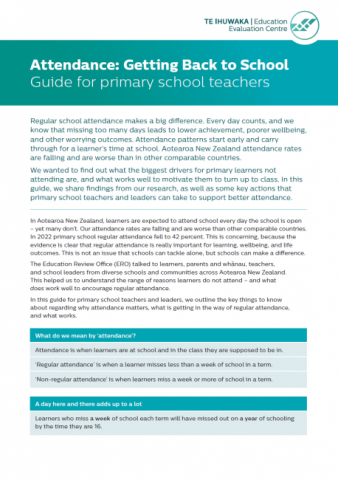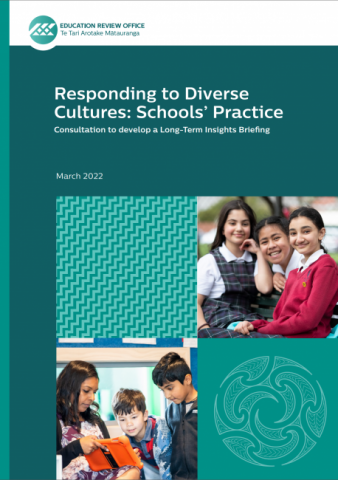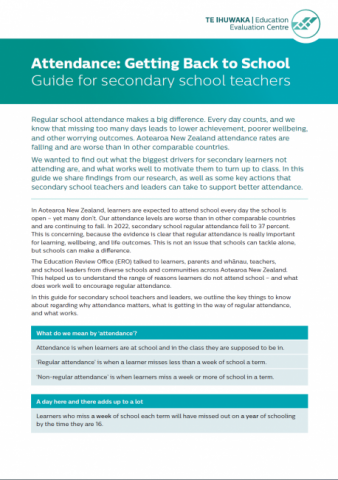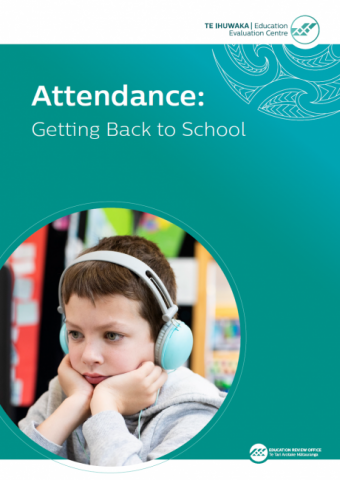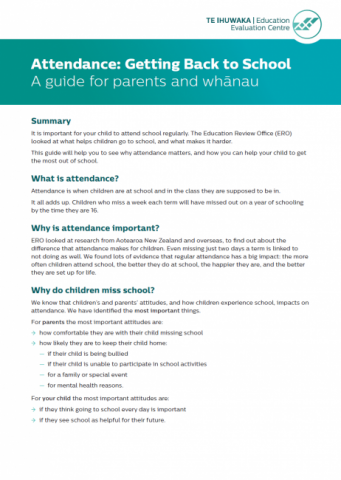A guide for kaiako and leaders on supporting science in early childhood
Published: 12 Apr 2021
To support teaching science in the early years, ERO talked to 147 early childhood services across New Zealand to find out what is happening for learners, and to identify good practice. This short guide draws on this work to help early childhood education leaders and kaiako understand what makes a difference for science in early childhood education and identify how they could strengthen science teaching and learning in their service.
- Audience:
- Academics
- Early learning
- Education
- Parents
- Content type:
- Research
- Topics:
- Science
- Guidance
